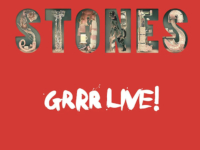In the age-old Beatles vs. Rolling Stones debate, I’ve spent much of my life quite firmly in the Beatles camp. Then one day, I found myself watching Coming Home.
Hal Ashby’s moving Vietnam film opened with a Rolling Stones song I’d never heard before, and I was intrigued. Brian Jones’ marimbas accented the song, giving it a color and texture that I’d never really noticed from the Rolling Stones before. I had to know more.
“Out of Time” was a No. 1 U.K. hit for Chris Farlowe, produced by Mick Jagger. But before it had ever been arranged for and recorded by Farlowe, “Out of Time” had appeared in 1966 on the U.K. version of the Stones’ Aftermath album in its full 5:36 glory. The American market would get a shorter 3½-minute edit on the U.S.-only Flowers album, and that edit would later appear on the More Hot Rocks (Big Hits & Fazed Cookies) compilation.
An alternate version was then released on the Metamorphosis collection, with the Chris Farlowe backing track and Mick Jagger’s lead vocals instead of Farlowe’s. There was also a new female background vocal added, just to set it apart from Farlowe’s version. No offense to the Rolling Stones, but this update is an aural atrocity. The Farlowe arrangement works well with Farlowe’s vocals, but Jagger’s vocals sound misplaced. He perfectly fit the 1966 Aftermath version, but hearing his voice over the Farlowe backing track feels jarring in comparison.
Still, this was more than just a song. For me, “Out of Time” was a paradigm shift. It sent me down a Rolling Stones rabbit hole. It had me re-evaluating my entire Beatles vs. Stones stance, and I finally started really listening to the Stones. As a vinyl collector, I even sought out the U.K. version of Aftermath so I could enjoy the full 5:36 version with its full vinyl warmth – the way it was meant to be heard.
Putting together a playlist of my favorite Stones songs on Spotify, I began to notice that my playlist focused much more in the Brian Jones era than the subsequent material. I slowly came to realize that I was enjoying these Rolling Stones more than my favorite Beatles songs. My favorite Beatles songs, in fact, were slowly revealed to actually be songs they recorded after splitting up. Sacrilege, right?! I expect the torches and pitchforks at my door any minute now. My favorite “Beatles” albums are John Lennon’s Imagine and George Harrison’s Cloud 9.
The greatest irony is that this musical discovery was sparked by obscure version of a Rolling Stones song that wasn’t originally released in the U.S. in its full original form and length.
Luckily, Spotify has both the U.K. and U.S. versions of Aftermath available for our listening enjoyment. No need to track down a vinyl or even compact-disc import of the U.K. version. Both have their pros and cons: The American LP is missing the brilliance and majesty of “Out of Time,” while the U.K. LP is missing the classic “Paint it Black,” which opens the U.S. version. I’d go so far as to argue that Aftermath – in either its U.K. or U.S. form – is the best Rolling Stones album of the Brian Jones era. (Beggar’s Banquet gets an asterisked mention, as Jones contributed to the album but was fired before its completion.)
Jones had his personal demons, but his subtle contributions to many of their early songs are what set the Rolling Stones apart from so many of their contemporaries. He elevated their material with his multi-instrumentation, shifting from guitar to marimbas to any number of any other instruments to give Stones songs just the right texture. The many other British Invasion bands of the ’60s who weren’t blessed with this kind of secret weapon have simply been discarded into the dustbin of history.
So I part with a challenge to my former compatriots on the Beatles side of the Beatles vs. Stones debate: Listen to “Out of Time.” It’s a wonderful gateway, a starting point in a journey down a very different musical path. You may just gain an appreciation of earlier Rolling Stones material that you never previously had, even if you still find your feet still firmly entrenched in the Beatles camp.
- The Most Surprising Moment on Alan Parsons Project’s ‘Eve’ - August 27, 2024
- Why the Audiobook Versions of Jimmy Barnes’ Autobiographies Are Definitive - June 24, 2024
- Kahvas Jute – ‘Wide Open’ (1970): Antipodean April - April 28, 2024




